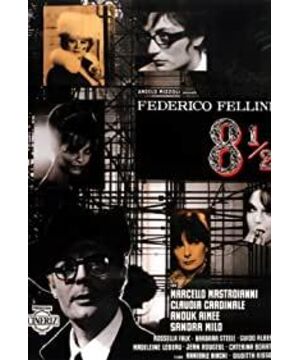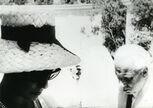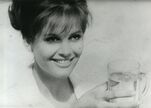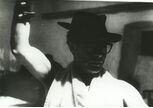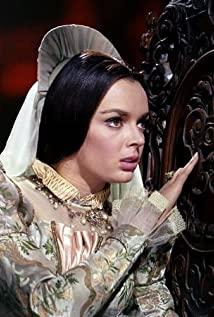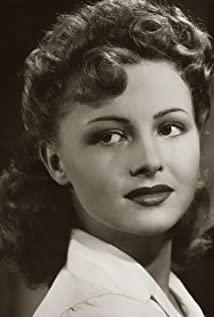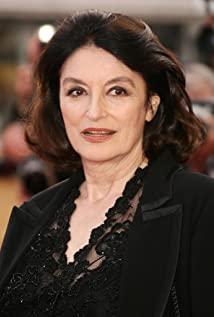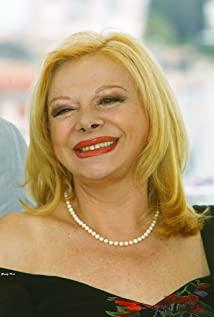The story revolves around the story of a director who was planning to make a new film but ultimately failed to make it. In reality, the director deals with his wife and mistress. The wife quarrelled with him because she became aware of the existence of his mistress. He was with his mistress, but was tortured by his conscience for fear of being discovered by his wife. His deceased parents, the experiences of his childhood, came to him again and again in his dreams, haunting him, making him both happy and uneasy. As for his work in reality, a movie that is about to start has never been formed in such a chaotic brain.
The movie was also shot that way. Everyone knows that the prototype of the director in the film is Fellini. The script was also revised several times, and finally people found that the director was the most suitable prototype. This autobiographical film established Fellini as a master. People saw Freud's theory in it, saw the ancient European cultural imprint, and were amazed at the richness of its connotation.
Going back to the simplest level, all I see is a person's predicament, and this predicament is the normal state of life. Just like the one that Zhou Zuoren advocates, our life is in a transitional era, and transition constitutes the most normal state of life.
The director's job lingered on the new film that was about to start, and it was never finished. The director's life is a struggle between his wife and mistress, and there is no solution. From a blank to the completion of a new film, from entanglement with two women to a happy marriage - the goal is beautiful, but the reality is regrettable - we have to solve problems and achieve goals, we have also made efforts, Or just let everything take its course, this process is actually our most real life - and it is like the director's feeling in the film, surrounded by anxiety, accidental happiness, endless thinking, doing. After a lot of efforts, I am still at a loss. In the director's dream, he could be taken up into the sky by a balloon, escaping this suffocating world. In reality, he still has to face daily inquiries, from producers, screenwriters, actors, or from his wife. The wife believes that he has a mistress and knows who it is, so she will only quarrel with him and ask for it. Divorce, and he doesn't want to. He didn't know how to get rid of these troubles, and in his daydreams, he had to swallow a gun and kill himself. When you wake up, you still have to face everything.
If life is doomed to such a normality, in an endless state of surrender, where everything has to happen, from here to there, from pending to completion, and the outcome is uncertain, then don't let that goal fool the mind. good.
In his childhood, the happy feeling of being served by a group of female relatives in the bath made the director still weave the dream of a group of wives and concubines in his adulthood, and he still yearns for the love he received in his childhood; His repression remained unsolved, and the priests who punished him in the church school always cast a shadow on him. Longing to be loved but not knowing how to love. Desire to escape and refuse to face. The subconscious mind makes the director devastated in reality, and to solve the problem, he must start from himself. That is to learn to face, to learn to love.
Fellini still loves the circus as always, and the clown. At the end of the film, the director took his wife's hand and danced happily with the circus people. Putting aside those predicaments, you should still find some happiness for yourself, and feel a little simple and pure happiness in the circus. If the circus can make people return to the carefree childhood, it is also like a kind of healing, treating the shortcomings of the past, and filling those sorrows with happiness - those who know happiness may know how to live.
Masina, Fellini's wife, a great actress known for playing the clown, and Fellini's best friend for 50 years. The Chinese homonym of her name is "circus". In 1992, Fellini learned that he had won the Oscar for lifetime achievement honors, and he did not want to participate, believing it meant the end of achievement. At a dinner party people persuaded him to go, and Masina whispered politely that he might go. Fellini suddenly yelled at her, I would never go. Then he felt embarrassed by people, especially Masina. He felt sad, and in order not to make her sad, he decided to attend the Oscars. At the awards ceremony, he said the following: "It's easy to thank everyone on an occasion like this. Of course, I want to thank everyone I've worked with. I can't count everyone's Name, I just want to say one name, an actress who is also my wife, thank you, dear Juliette...please stop crying." The day after their 50th golden wedding anniversary - October 1993 31 – Fellini dies.
Perhaps the actress known for playing the clown was the one who healed Fellini from the trauma of his childhood so much that he couldn't live without her. Before the Oscars, learning that Masina was seriously ill, he said, "I'm going to do everything in my power to make her happy. I can't imagine how I'd go on living without Juliette." He finally walked ahead of her.
He revealed our predicament, which he actually struggled with all his life. In this, stop occasionally and try to have some fun for ourselves, and those innocent joys are the most joyful, and maybe this is the only thing we can do for ourselves.
View more about 8½ reviews


